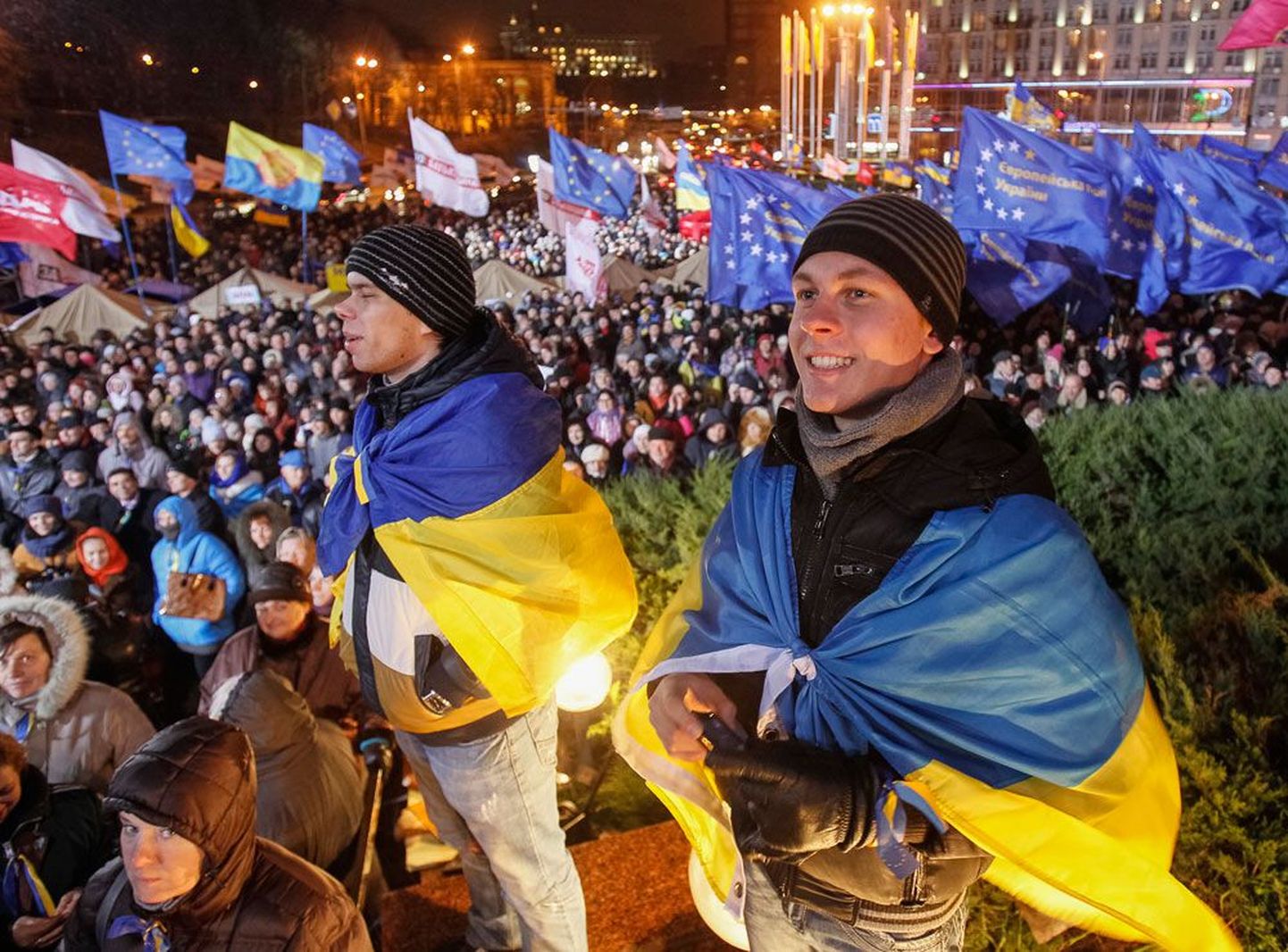
EU-Russian border-line at Independence Square, Kiev

EU-Russian border-line at Independence Square, Kiev
Hundred thousand plus demonstrators have flocked to the streets of Kiev with violent incidents more numerous than in days of the Orange Revolution.
This not being the sole difference. Back then, the aim was fresh elections in place of the forged ones. Today, reasons are many. Although triggered by decision by President Viktor Yanukovych not to sign association agreement with EU, the rallies would hardly have grown so vast without a general dissatisfaction with power structures, and without militia using force to add steam to the displeasure.
And, in case presidential failure to sign treaty was the main thing, more is at stake: the agreement would have served as a path inclined towards European Union, helping Ukraine to slide away from Russian reach. The heart of the one-time empire has not stopped beating: circulation with partly amputated members is preserved as long as possible. And this is just the way Russia still views Kiev: not a state totally independent; rather, a piece cut off – semi-forcefully – by the scalpel of Western provocations. From there on, the issue is economical: as counterweight to European Union, the Eurasian economic space is offered, also known as Soviet Union Lite, to restore normal circulation... for starters.
How is the West to react, to developments in Kiev? EU principles would dictate negotiations instead of seeking a conflict. Up to now, relations with Ukraine have served to allow that. As expressed, in joint declaration yesterday, by Polish and Swedish foreign ministers Radek Sikorski and Carl Bildt: Europe still stands ready to sign; even so, Ukraine must decide if it wants that or not.
Still, EU may now be facing a tough choice: whether to support Ukraine’s president and, thus, a stable Ukraine with whom to continue negotiation in months or years to come – or take a stand in favour of the pro-European protesters?
The choice, however, is not between the protesters and Mr Yanukovych; rather, it is between conflict and dialogue. And that pretty soon, while a good solution currently seems evasive in Kiev.
In a couple of days, on December 5th to 6th, Kiev will host a meeting of OSCE ministers; clearly, they are expected to react. Whatever the reaction, it will be considered a sign. As tweeted yesterday by the Economist’s foreign editor Edward Lucas, OSCE ministers now face a choice: to boycott the meeting, to join protesters or to show up and express displeasure at what happened.
The first two would conflict with the no-conflict principle. The latter, sadly, would be of very little use.